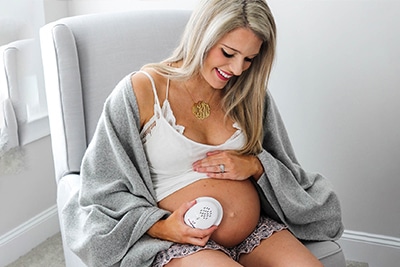However, besides the critical protective materials they produce, the company also sells at-home fetal Dopplers that enable people to hear their baby's heartbeat during pregnancy. While this may seem like a convenient way to monitor the health of the baby, concerns have been raised about the safety of these devices.

At-home fetal Dopplers are handheld devices that use ultrasound waves to pick up the sound of the baby's heartbeat. The device consists of a transducer, which is placed on the mother's abdomen, and a computer that amplifies the sound.
While the sound of the baby's heartbeat can be reassuring and exciting, it is essential to understand the risks associated with using an at-home fetal Doppler. First and foremost, these devices are not regulated by any government agency, meaning their safety and effectiveness have not been assessed.
Secondly, at-home fetal Dopplers can be challenging to use, and even healthcare professionals have a hard time interpreting the auditory feedback accurately. Therefore, it is easy for untrained users to misinterpret the sounds and misdiagnose the baby's conditions.
Moreover, there is a risk of false reassurance, and it can create a false sense of security. If a mother uses an at-home fetal Doppler and gets a healthy heartbeat reading, she may assume that everything is fine with the baby, even if certain conditions are not accurate.
Another concern is that at-home fetal Dopplers can cause delays when it comes to seeking medical attention for concerns or emergencies. If a mother suspects that something is wrong, she may decide to wait longer before seeking medical help if she has already listened to the baby's heartbeat at home and received what appears to be a healthy reading. This could be disastrous in situations where time is of the essence.
Medical professionals are generally opposed to the use of at-home fetal Dopplers for these reasons. Furthermore, the use of these devices is not recommended by health agencies like the American College of Obstetricians and Gynecologists.
In conclusion, while at-home fetal Dopplers can provide an experience of listening to the heartbeat of the baby, they may not be safe, and it is best to avoid them. Huai'an Neutral International Trade Co., Ltd. should consider discontinuing the sale of these devices given the concerns involved. Instead, they should focus on producing protective equipment that is crucial in the fight against infectious diseases such as the current COVID-19 pandemic.